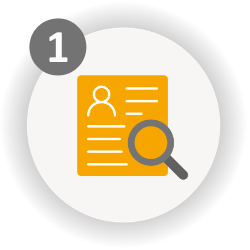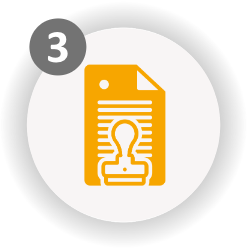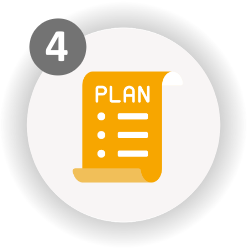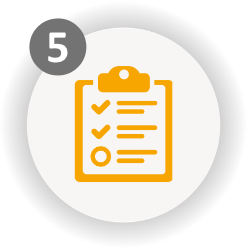Steps to self-employment
Individuals from the EU, EEA and Switzerland
Are you a citizen of another EU country, the European Economic Area or Switzerland? If so, you can enjoy the freedom of establishment in Germany and can start your own business in Germany without needing any special permit to do so. You simply need to adhere to the requirements for your respective occupation. In order to work on a self-employed basis in some professions, you must first have your qualifications checked and officially recognised.This is especially true for highly qualified professions, such as those within the medical sector. But you also need to provide proof of your qualifications for many skilled manual jobs in Germany too if you wish to practise these on a self-employed basis.
To find out more about the qualifications that you need to provide proof of for your occupation, check out our glossary of professions!
Step by step to self-employment
As an EU citizen, you can become self-employed in Germany without a special permit if you meet the requirements and qualifications for your profession. In the next few steps, we will show you how best to proceed, what you need to consider and what the best way would be for your start-up to be successful.
Check whether your self-employment is classified as a trade profession or a freelance profession. In our Glossary we explain the differences to you, and you will find the most important information in our Glossary of professions.
Write a business plan. Although you don't have to write a business plan to register your self-employment, you need a business plan if you want to apply for credit or a loan from a bank. On our page, The business plan, we explain what a business plan should contain.
Check whether you have all the documents required for registration at the trade office or the tax office. We have compiled a checklist for your convenience (registration at the trade office, registration at the tax office) on our page Forms, documents and other papers. If your self-employment is one of the “freelance professions”, then you must register your self-employment with the tax office. If your self-employment is classified as a “trade”, then you must register your self-employment with the trade licencing office.
Full-time or part-time self-employment
If you do not want to start your self-employment immediately on a full-time basis (at least 40 hours a week), you must clarify whether you are self-employed full-time or part-time. Health insurance contributions depend on this decision. It is full-time self-employment if:
- the amount of your income and the time required for self-employment are higher than your other gainful employment (e.g. if you are still employed in a company), and
- there is no one telling you what to do.
Many people are self-employed as a sideline enterprise. That means a company employs you, but you also work for your own company. This solution is well suited to trying out a business idea and not immediately taking the full risk, as you are socially insured through your employer, and you have a secure basic income. Over time, you can then decide whether you want to become completely self-employed, give it up, or establish two mainstays - self-employed and employed. It is important that you inform your employer.
If you’re not sure whether your business idea will work on the market and whether your service or product will sell well, you can first work in the industry as an employee and get to know the market and potential customers. At the same time, you can expand your own knowledge and skills and, in this way, be well-prepared to start your own business.
Perhaps you are a little uncomfortable with the thought of having to bear all the responsibility yourself. Or you are unsure whether you have all the necessary contacts and knowledge to successfully implement your idea. If this is the case, look for a business partner (or several) who complement(s) you well and who compensate(s) for your weaknesses and you for theirs.








